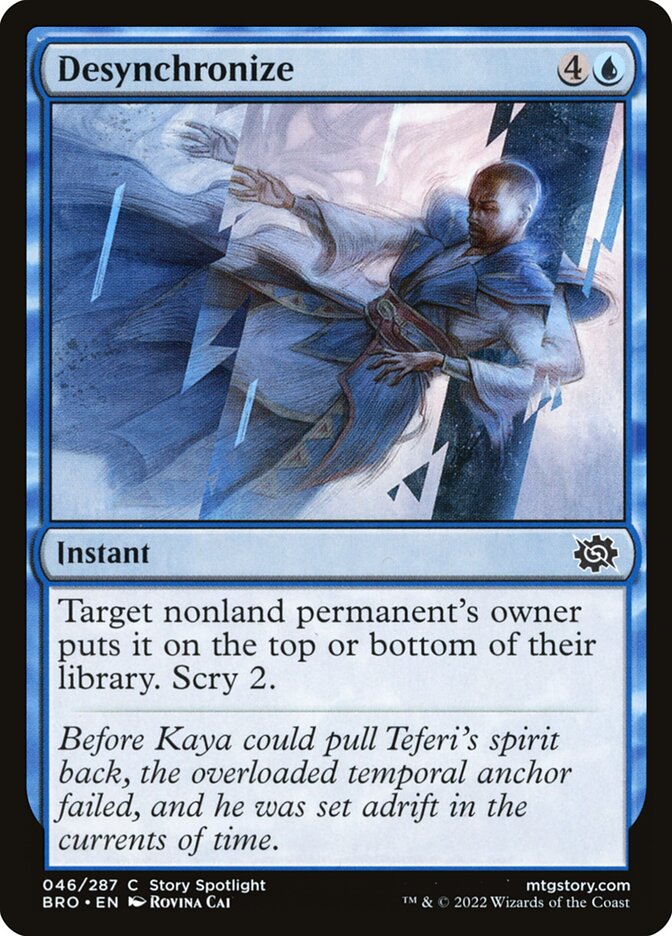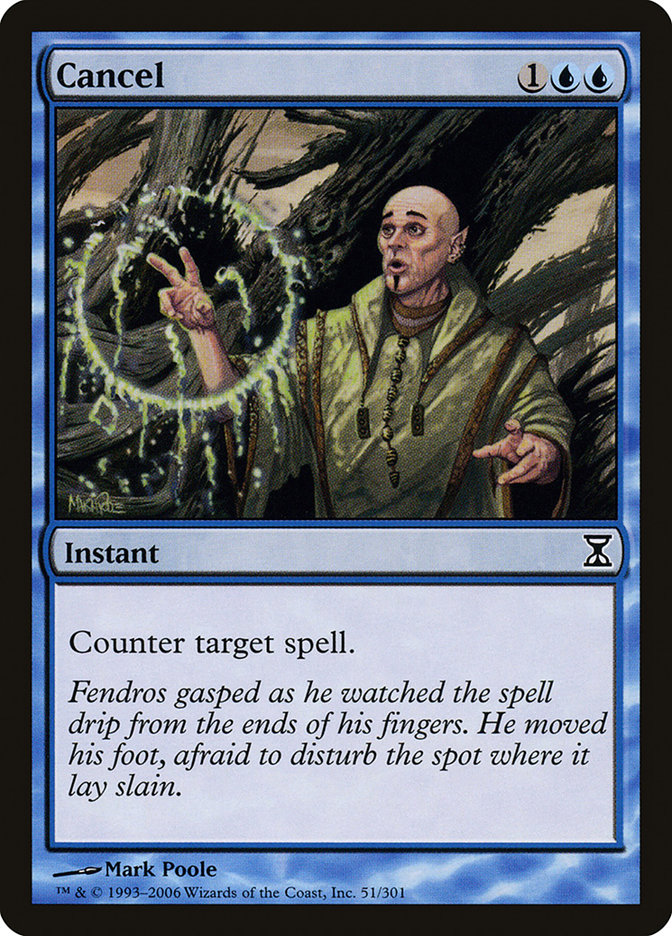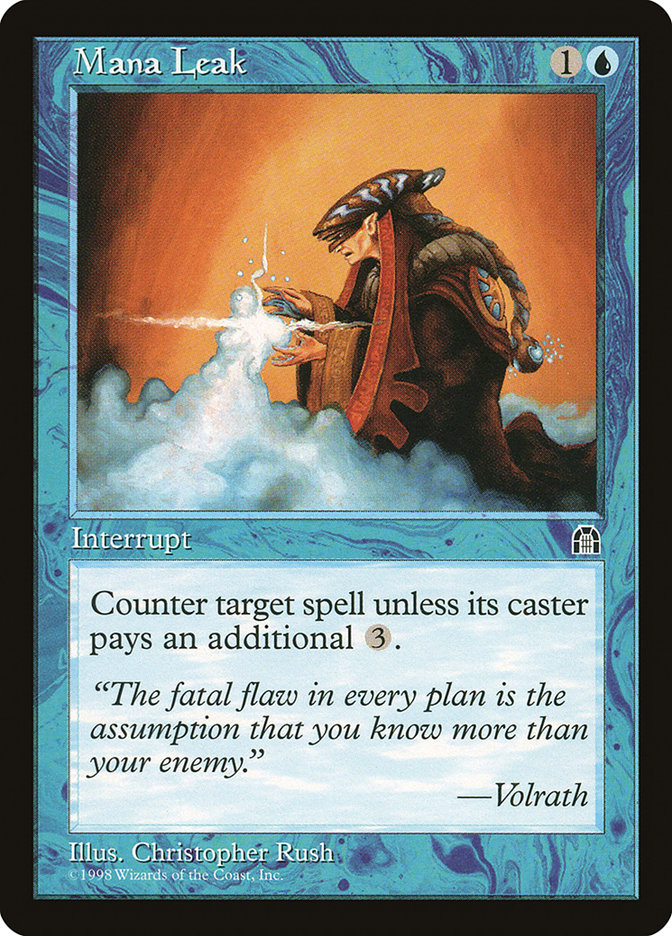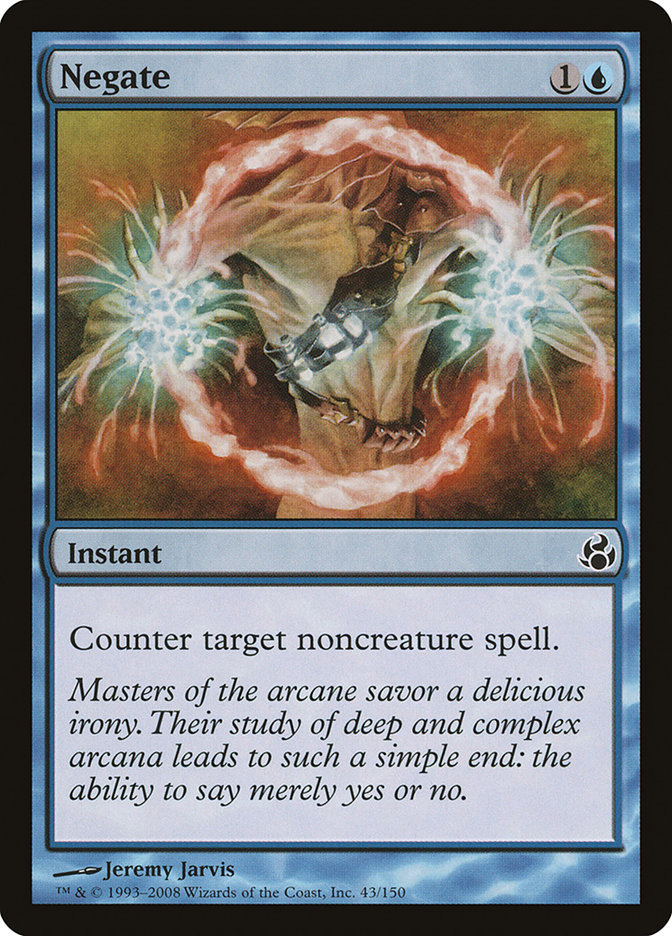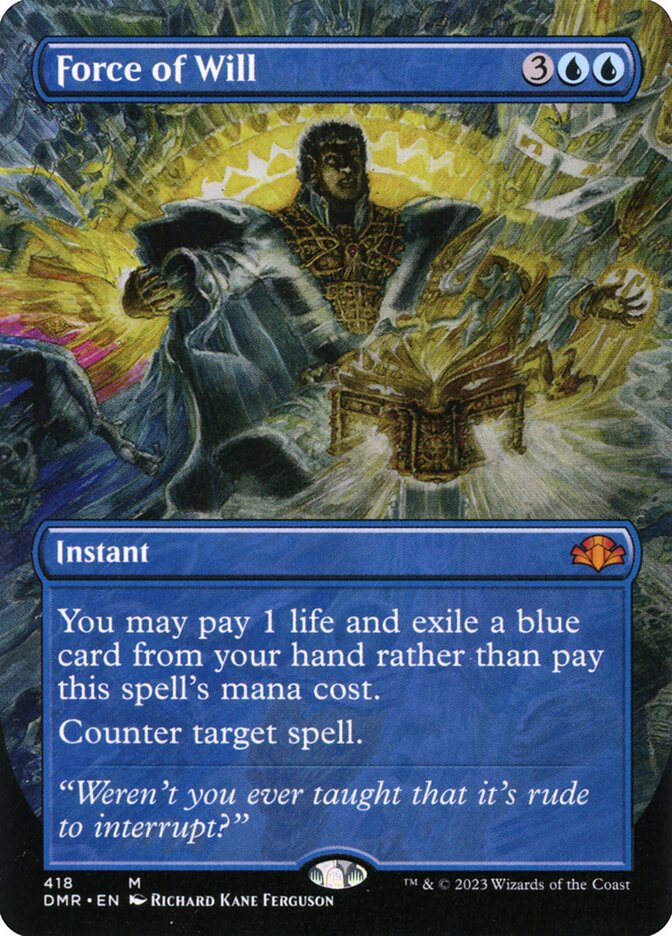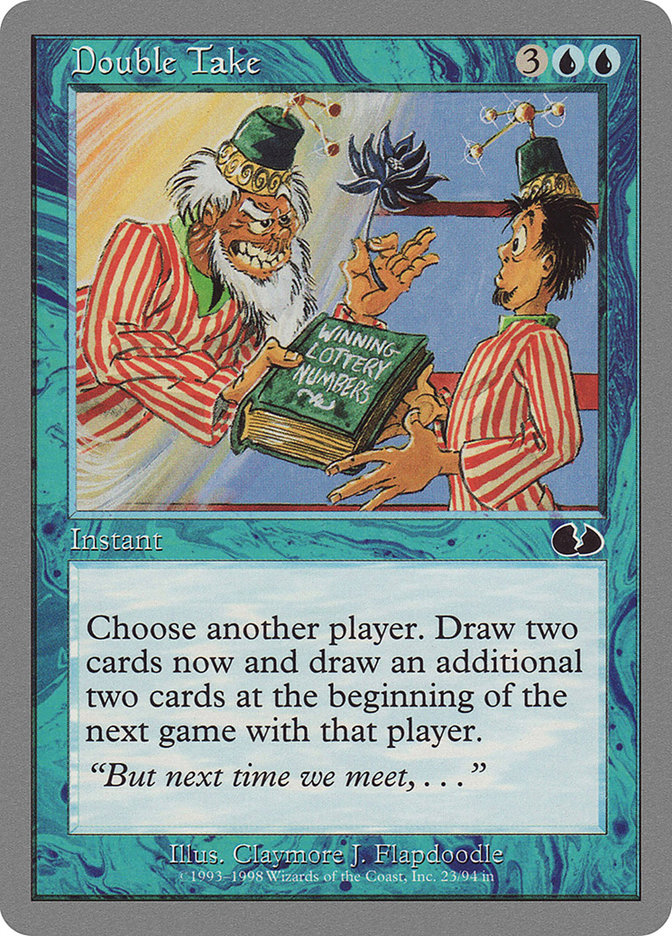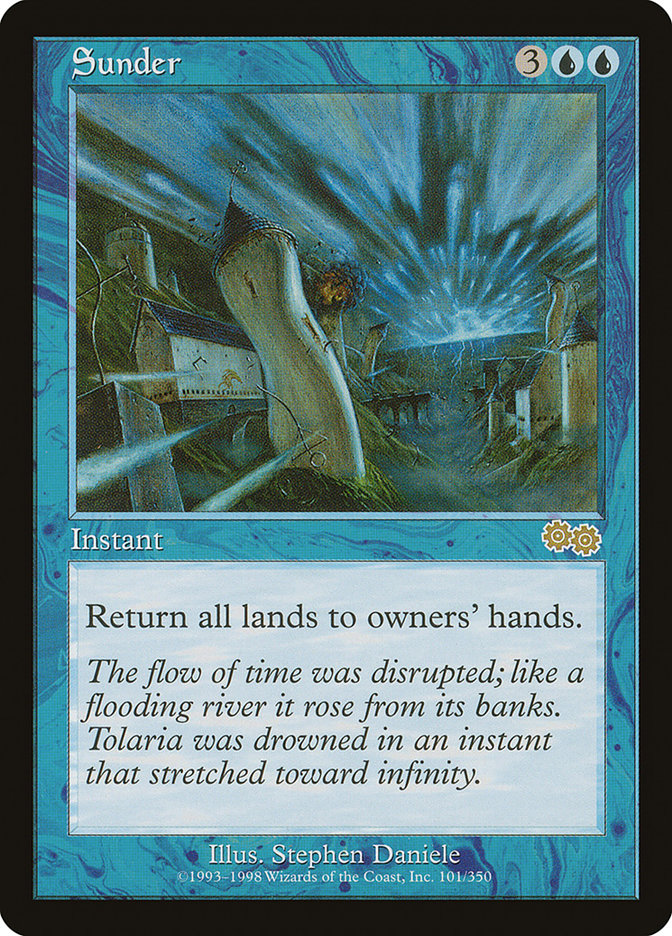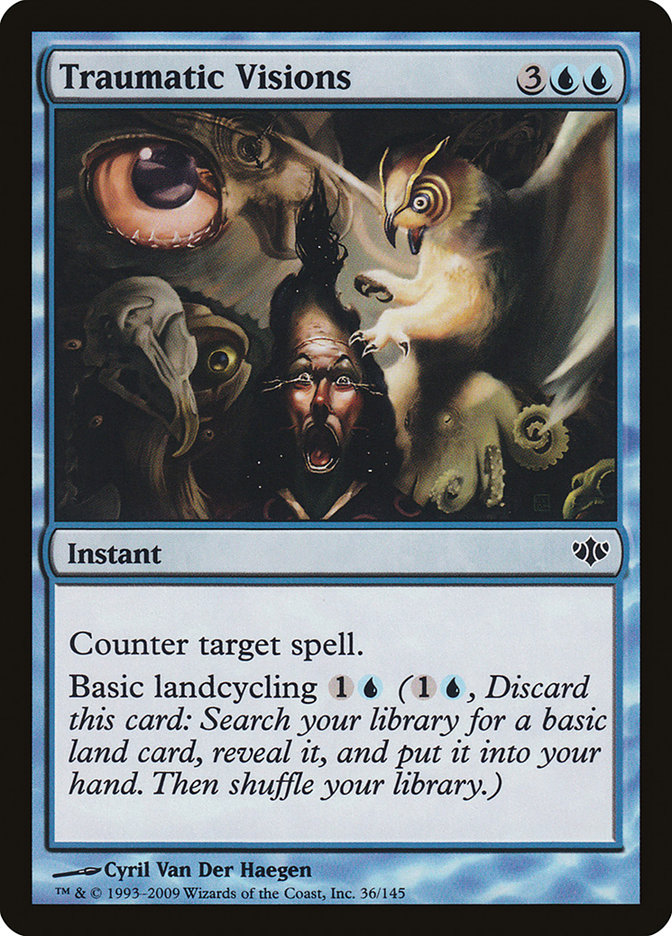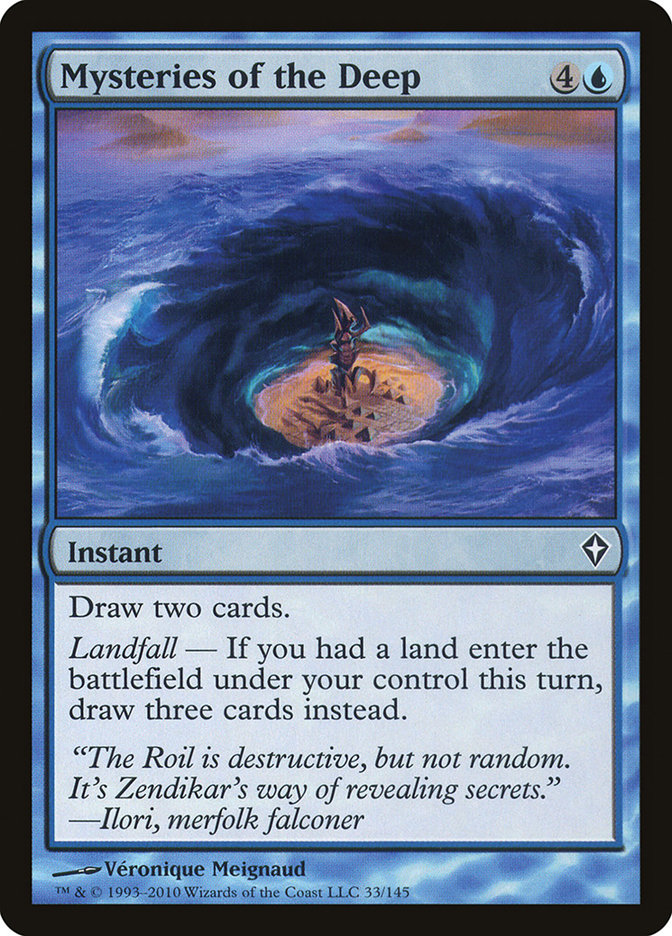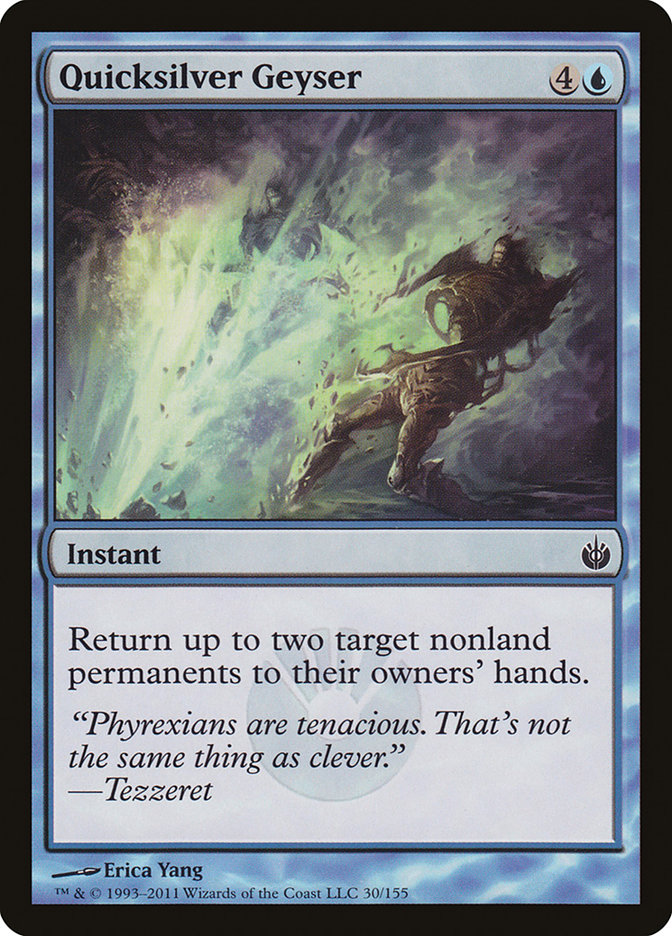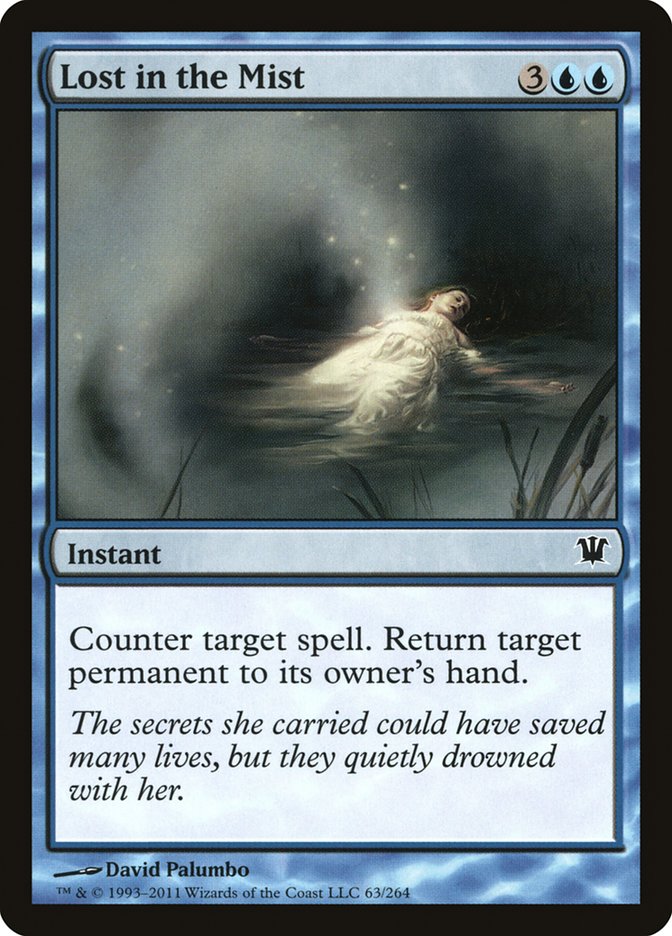Desynchronize MTG Card
| Mana cost | |
| Converted mana cost | 5 |
| Rarity | Common |
| Type | Instant |
| Abilities | Scry |
| Released | 2022-11-18 |
| Set symbol | |
| Set name | The Brothers' War |
| Set code | BRO |
| Number | 46 |
| Frame | 2015 |
| Layout | Normal |
| Border | Black |
| Illustred by | Rovina Cai |
Text of card
Target nonland permanent's owner puts it on the top or bottom of their library. Scry 2.
Before Kaya could pull Teferi's spirit back, the overloaded temporal anchor failed, and he was set adrift in the currents of time.
Cards like Desynchronize
Desynchronize exemplifies the strategic complexity of counter spells within the realm of Magic: The Gathering. It mirrors certain traits seen in classics like Cancel, which also negates a spell for an identical mana cost. Yet, Desynchronize brings a twist to the table with its alternative cost option, allowing flexibility within mana management when compared to the straightforward Cancel.
Another counterpart is Mana Leak, which brings in a cost-effective challenge for the opponent, requiring them to pay an additional three mana or have their spell fizzle. Though less absolute than Desynchronize, Mana Leak can be a game-changer in early rounds. Negate stands out as well with its restriction to noncreature spells but carries the advantage of a lower cost. While not as universally applicable as Desynchronize, it can provide a tactical edge against control and combo decks.
By weighing their specific mechanisms and situational benefits, Desynchronize holds its ground in a variety of settings, adeptly balancing cost with adaptability. Such traits make it a worthy consideration for deck builders aiming to thwart their opponents’ plans in Magic: The Gathering.
Cards similar to Desynchronize by color, type and mana cost
Card Pros
Card Advantage: Desynchronize enables seasoned and new players alike to disrupt an opponent’s plans while simultaneously cycling through the deck. This effective card offers a unique way to counter a target spell unless its caster pays an additional cost, potentially preventing a game-changing play while keeping your hands replenished.
Resource Acceleration: An indirect form of resource acceleration is achieved with Desynchronize as it can thwart an opponent’s costly spell. Consequently, this can set your rival back, allowing you to maintain or sweep ahead in the race for board presence and mana efficiency. This aspect is particularly crucial in tightly-contested matches where tempo plays a pivotal role.
Instant Speed: The inherent flexibility of instant speed spells is a staple in Magic the Gathering, providing the adept player with options and responses at critical times. Desynchronize embodies this flexibility, offering the chance to cast the spell during an opponent’s turn or in response to other actions, maintaining the element of surprise and strategic depth.
Card Cons
Discard Requirement: One notable downside to Desynchronize is its discard prerequisite for casting. This can be a double-edged sword, especially when your hand is already depleted, forcing you to give up potentially vital cards in your strategy. It is a constraint that requires careful hand management and may not always align with your game plan.
Specific Mana Cost: Desynchronize also demands a precise mana arrangement which includes blue mana. While this fits seamlessly into mono-blue or blue-inclusive decks, it can complicate the mana base for multicolored or colorless decks, potentially restricting its playability across various deck archetypes.
Comparatively High Mana Cost: Another aspect to consider is the card’s mana valuation. With a requirement of three mana, including two blue, for its effect, some players may find it less economical compared to other disruption options available in the game. In fast-paced games or metagames where efficiency is key, the cost of Desynchronize might be too steep, leading players to opt for lower-cost alternatives.
Reasons to Include Desynchronize in Your Collection
Versatility: Desynchronize offers a flexible countermeasure, fitting seamlessly into control decks that require protection against noncreature spells. Its capacity to interrupt key opponent plays makes it adaptable across various situations.
Combo Potential: Particularly benefiting decks that capitalize on spell casting or countering, Desynchronize could be crucial for combos that rely on maintaining an uninterrupted sequence of plays or for synergizing with cards that reward you for casting instant spells.
Meta-Relevance: Given a meta that’s heavy on combo decks or that revolves around critical noncreature spells, the ability of Desynchronize to efficiently disrupt such strategies without a hefty mana investment can make it a game-changer, solidifying it as a relevant choice for competitive play.
How to beat
Desynchronize is an intriguing countermeasure for spell-centric decks in Magic the Gathering. When up against this card, consider the strategic timing of your spellcasting. Desynchronize can only thwart spells that match its color unless you pay an additional cost. An effective approach to outmaneuver Desynchronize is to diversify your deck’s color palette and vary the types of spells you cast. This makes it harder for your opponent to effectively use it against you.
Another tactic is to bait out Desynchronize early in the game. Play less crucial spells first to draw it out; once it’s used, you can proceed with your game-changing spells with more confidence. Additionally, keep in mind the mana your opponent has available. Desynchronize demands a specific mana investment, so applying pressure when their resources are low can reduce the risk of your important spells being countered. Lastly, spells that can’t be countered, or those that provide an advantage even if countered, inherently diminish Desynchronize’s effectiveness.
Ultimately, while Desynchronize can be a thorn in the side of spell-heavy strategies, there are multiple ways to mitigate its impact. Flexibility in deck building and smart play sequencing can ensure you stay one step ahead in the strategic dance of MTG.
Where to buy
If you're looking to purchase Desynchronize MTG card by a specific set like The Brothers' War, there are several reliable options to consider. One of the primary sources is your local game store, where you can often find booster packs, individual cards, and preconstructed decks from current and some past sets. They often offer the added benefit of a community where you can trade with other players.
For a broader inventory, particularly of older sets, online marketplaces like TCGPlayer, Card Kingdom and Card Market offer extensive selections and allow you to search for cards from specific sets. Larger e-commerce platforms like eBay and Amazon also have listings from various sellers, which can be a good place to look for sealed product and rare finds.
Additionally, Magic’s official site often has a store locator and retailer lists for finding Wizards of the Coast licensed products. Remember to check for authenticity and the condition of the cards when purchasing, especially from individual sellers on larger marketplaces.
Below is a list of some store websites where you can buy the Desynchronize and other MTG cards:
 BUY NOW
BUY NOW BurnMana is an official partner of TCGPlayer
- eBay
- Card Kingdom
- Card Market
- Star City Games
- CoolStuffInc
- MTG Mint Card
- Hareruya
- Troll and Toad
- ABU Games
- Card Hoarder Magic Online
- MTGO Traders Magic Online
See MTG Products
Legalities
Magic the Gathering formats where Desynchronize has restrictions
| Format | Legality |
|---|---|
| Standard | Legal |
| Historicbrawl | Legal |
| Historic | Legal |
| Legacy | Legal |
| Paupercommander | Legal |
| Oathbreaker | Legal |
| Gladiator | Legal |
| Alchemy | Legal |
| Pioneer | Legal |
| Commander | Legal |
| Modern | Legal |
| Pauper | Legal |
| Future | Legal |
| Vintage | Legal |
| Duel | Legal |
| Explorer | Legal |
| Brawl | Legal |
| Timeless | Legal |
Rules and information
The reference guide for Magic: The Gathering Desynchronize card rulings provides official rulings, any errata issued, as well as a record of all the functional modifications that have occurred.
| Date | Text |
|---|---|
| 2022-10-14 | The permanent's owner chooses whether to put it on the top or bottom of their library. If multiple cards are put into the library this way (such as when the spell targets a melded permanent), that permanent's owner puts all the cards on top or all the cards on the bottom. They put them in whatever order they wish, and do not need to reveal the order. |
